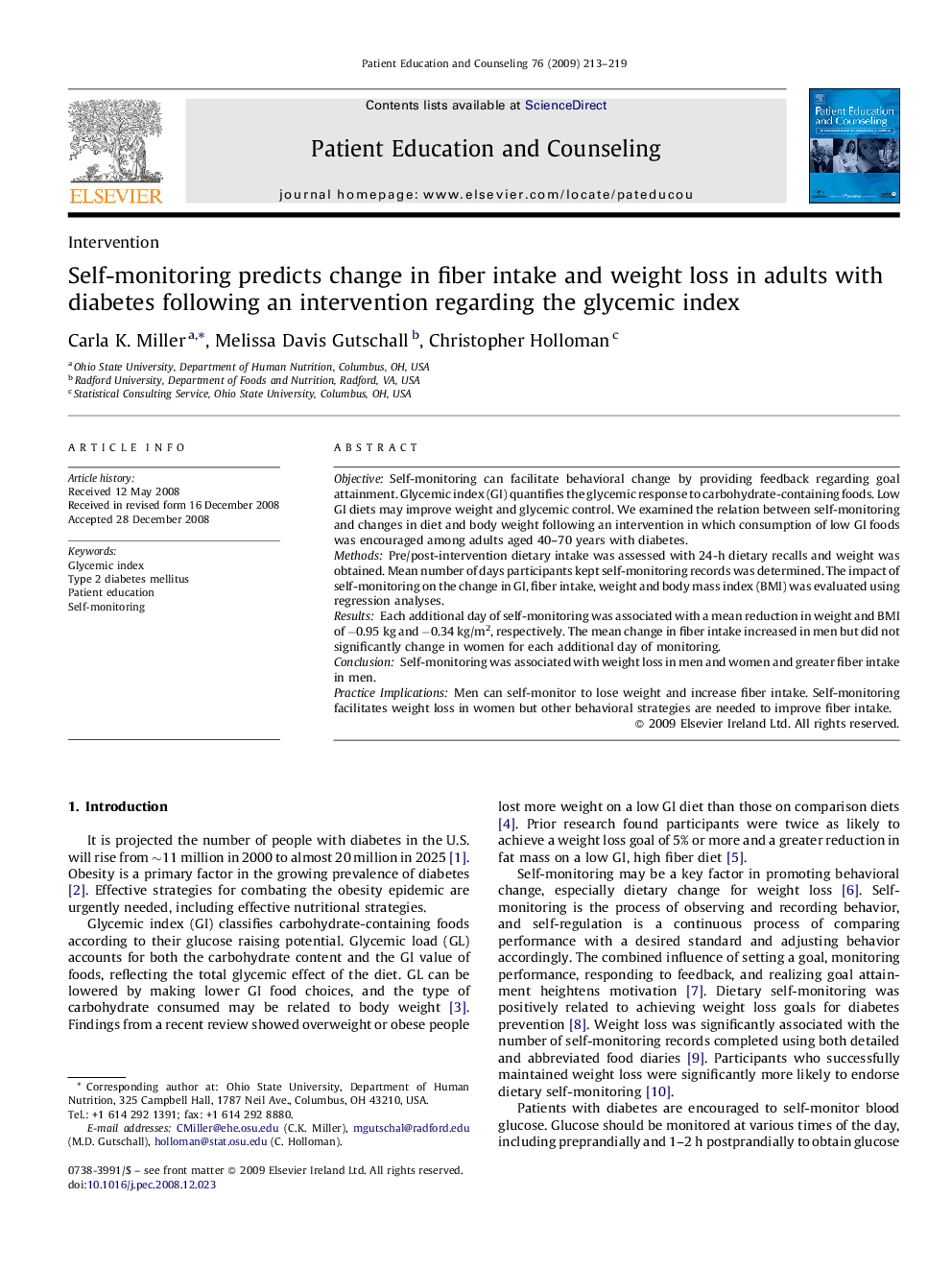| Article ID | Journal | Published Year | Pages | File Type |
|---|---|---|---|---|
| 3816322 | Patient Education and Counseling | 2009 | 7 Pages |
ObjectiveSelf-monitoring can facilitate behavioral change by providing feedback regarding goal attainment. Glycemic index (GI) quantifies the glycemic response to carbohydrate-containing foods. Low GI diets may improve weight and glycemic control. We examined the relation between self-monitoring and changes in diet and body weight following an intervention in which consumption of low GI foods was encouraged among adults aged 40–70 years with diabetes.MethodsPre/post-intervention dietary intake was assessed with 24-h dietary recalls and weight was obtained. Mean number of days participants kept self-monitoring records was determined. The impact of self-monitoring on the change in GI, fiber intake, weight and body mass index (BMI) was evaluated using regression analyses.ResultsEach additional day of self-monitoring was associated with a mean reduction in weight and BMI of −0.95 kg and −0.34 kg/m2, respectively. The mean change in fiber intake increased in men but did not significantly change in women for each additional day of monitoring.ConclusionSelf-monitoring was associated with weight loss in men and women and greater fiber intake in men.Practice ImplicationsMen can self-monitor to lose weight and increase fiber intake. Self-monitoring facilitates weight loss in women but other behavioral strategies are needed to improve fiber intake.
